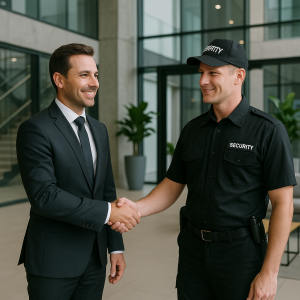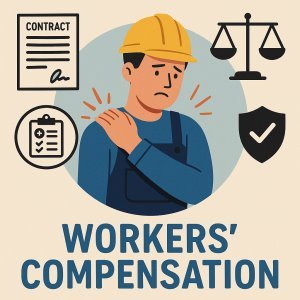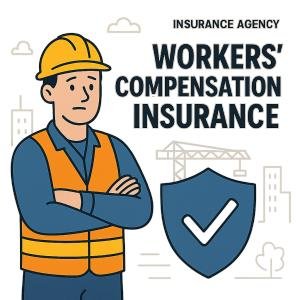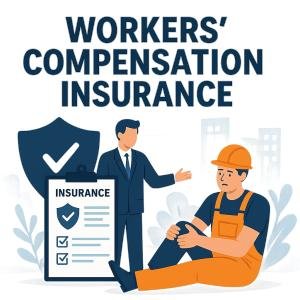In the dynamic surroundings of the hotel and hospitality industry, security guards play a crucial role in ensuring the safety and well-being of guests, staff, and property. However, their responsibilities often place them in situations that carry a heightened risk of injury, making workers’ compensation claims an crucial area of concern for employers and insurers alike. This article delves into the key workers’ comp claims hotspots within the hotel and hospitality security sector, examining common injury patterns, contributing factors, and strategies for mitigation to help businesses better manage risk and safeguard their workforce.
Table of Contents
Hotel and Hospitality Security Guards Risk Exposure and Common Injury Types
Security guards in the hotel and hospitality sector face a unique blend of challenges that amplify their risk exposure daily. From managing unpredictable guest behavior to dealing with emergency evacuations or late-night disturbances, the physical demands and stress levels are notably high. Slip and fall incidents,frequently enough caused by polished lobby floors or spilled liquids,remain one of the most common injury causes. Guards are also vulnerable to assaults or altercations involving intoxicated or irate guests, leading to bruises, fractures, or even more severe traumatic injuries. In addition, the repetitive nature of security tasks such as patrolling and standing for extended periods increases the likelihood of musculoskeletal disorders, notably in the lower back and legs.
To better illustrate typical injury types and their frequency, consider the following breakdown common in hospitality security claims:
| Injury Type |
Incident Source |
Typical Claim Outcome |
| Slip and Fall |
Wet floors, stairways |
Sprains, fractures, medical treatment |
| Physical Assault |
Guest altercations |
Bruising, concussions, lost workdays |
| Overexertion |
Prolonged standing, lifting |
Muscle strains, chronic pain |
| Stress-Related |
High-pressure situations |
Mental health claims, absenteeism |
Ultimately, understanding these risk vectors allows hotel management to implement targeted safety protocols, including routine hazard assessments and tailored employee wellness programs, to minimize workers’ compensation claims and foster a safer working environment.
Analyzing Claims Data to Identify High-Risk Situations and Locations
diving deep into claims data reveals distinct patterns of risk faced by security personnel in the hospitality industry.Certain scenarios-such as late-night confrontation with unruly guests or managing large event crowds-frequently correlate with higher injury rates. Additionally, common locations within properties, like parking garages, lobby entrances, and service corridors, emerge as hotspots where incidents disproportionately occur. Understanding these trends allows management to proactively deploy resources, increase staff training tailored to specific challenges, and implement preventative measures where they matter most.
A detailed breakdown of claims by location highlights not only the volume but the nature of incidents, which helps in crafting targeted safety protocols. For example, slip-and-fall incidents may dominate in stairwell areas due to poor lighting or wet conditions, while altercations happen more around bar areas or near late-shift locker rooms. By strategically using this data, security teams can focus on high-risk zones to reduce injury rates and associated workers’ compensation costs.
| Location |
Common Incident Type |
Claim Frequency |
recommended Action |
| Parking Garage |
Assaults & Slips |
High |
Increase Lighting & Surveillance |
| Lobby Area |
Guest Altercations |
Moderate |
Conflict De-escalation training |
| Event Spaces |
Crowd Management injuries |
Moderate |
Additional Staffing During Events |
| Service Corridors |
slip/Trips |
Low |
Regular Floor Maintenance |
Strategies to Mitigate Workplace Hazards and Reduce Workers’ Compensation Claims
Implementing robust safety protocols is essential to minimizing risks faced by security personnel in hotel and hospitality environments.Regular risk assessments help identify potential hazards such as slips, trips, confrontations, and ergonomic stressors. Investing in comprehensive training programs equips guards with conflict resolution techniques, emergency response skills, and proper equipment handling. Additionally, fostering a culture of safety through frequent dialog and employee involvement ensures that hazards are proactively addressed before incidents occur.
Key preventative measures include:
- Routine safety audits and hazard identification rounds
- Personal protective equipment (PPE) tailored to specific job tasks
- Clear incident reporting systems to monitor near misses and injuries
- Ergonomic evaluations to reduce strain from shift work and patrol duties
- Regular refresher training emphasizing situational awareness and de-escalation strategies
| Preventative Strategy |
Benefit |
Implementation frequency |
| Risk Assessments |
Early hazard detection |
Quarterly |
| Conflict De-escalation Training |
Reduced violent incidents |
Biannual |
| PPE Usage |
Injury prevention |
Daily |
| Ergonomic Support |
Lower musculoskeletal claims |
Annual |
Best Practices for Training and Supporting Security Personnel in Hospitality Settings
To reduce the frequency and severity of workers’ compensation claims, it’s crucial to implement comprehensive training programs tailored specifically to the challenges security personnel face in hospitality environments. Effective training shoudl emphasize conflict resolution techniques, situational awareness, and emergency response procedures, ensuring guards can swiftly identify and de-escalate potential threats. Incorporating role-playing scenarios that mimic real-life situations, such as handling aggressive guests or managing overcrowded events, equips guards with practical skills that improve on-the-job decision making.
Ongoing support is equally importent for maintaining a well-prepared security team.Establishing a formal feedback loop where guards can share concerns and receive timely guidance fosters a proactive safety culture. Additionally,providing access to mental health resources and stress management workshops helps personnel cope with the high-pressure nature of their roles. Companies should consider the following structured framework to bolster training and support:
- Regular refresher courses based on latest security trends and technologies
- Mentorship programs pairing new hires with experienced guards
- Clear protocols and documentation for incident reporting and claim submission
- Incentive programs to reward adherence to safety practices and reduce risks
Q&A
Q&A: Hotel & Hospitality Security Guards – Workers’ Comp Claims Hotspots
Q1: What makes hotel and hospitality security guards particularly vulnerable to workers’ compensation claims?
A1: Hotel and hospitality security guards face unique risks such as physical confrontations with unruly guests, slip and fall accidents in large properties, exposure to hazardous substances, and repetitive strain from prolonged standing or patrolling. These factors contribute to a higher incidence of workplace injuries, increasing workers’ compensation claims within this sector.
Q2: Which types of injuries are most commonly reported by security guards in hotels and hospitality settings?
A2: The most frequent injuries include musculoskeletal disorders from long hours on duty, bruises and lacerations from physical altercations, strains and sprains related to manual handling or emergency responses, and slips, trips, and falls due to environmental hazards such as wet floors or poorly lit areas.
Q3: Are there particular work environments within the hospitality industry that present higher risks for security personnel?
A3: Yes. High-traffic areas such as hotel lobbies, event venues, nightclubs, and areas with late-night activity tend to have a higher incidence of security-related incidents. Additionally,properties located in high-crime neighborhoods pose elevated risks for violent encounters.
Q4: How can hotel management mitigate the risk of workers’ compensation claims among security staff?
A4: Effective risk mitigation strategies include comprehensive safety training, conflict de-escalation techniques, providing appropriate personal protective equipment (PPE), regular safety audits of the premises, and implementing robust incident reporting and response protocols. Additionally, ensuring proper staffing levels and rotation can reduce fatigue-related injuries.
Q5: What role does workers’ compensation insurance play in protecting both security guards and hotel operators?
A5: Workers’ compensation insurance provides necessary financial protection and medical coverage for employees injured on the job, facilitating prompt recovery and return to work.For hotel operators, it mitigates the financial impact of workplace injuries, helps maintain compliance with labor laws, and promotes a safer work environment, ultimately reducing liability exposure.
Q6: Can technology play a role in improving security guard safety and reducing workers’ comp claims in hospitality?
A6: Absolutely. Advanced surveillance systems, panic buttons, GPS tracking, and mobile communication devices enhance situational awareness and rapid response capabilities. These technologies can deter incidents, provide real-time support to guards, and document events accurately, thereby reducing the occurrence and severity of injuries.
Q7: What trends are emerging in workers’ compensation claims within the hotel and hospitality security sector?
A7: Recent trends indicate a growing awareness of mental health claims related to workplace violence and stress, alongside customary physical injuries. Employers are increasingly adopting wellness programs and offering access to counseling services as part of their overall risk management and employee support strategies.
Q8: Why is addressing workers’ comp hotspots critical for the hospitality industry’s sustainability?
A8: Managing injury hotspots effectively minimizes downtime, controls insurance costs, and enhances employee morale and retention. A proactive approach to safety in the security workforce supports consistent guest service quality, preserves the brand reputation, and ensures regulatory compliance-key components for long-term operational success.
The Way Forward
understanding the specific risks faced by hotel and hospitality security guards is essential for effectively managing workers’ compensation claims within this sector. By recognizing the common hotspots for injuries and addressing these proactively through targeted training, comprehensive safety protocols, and fostering a secure work environment, employers can mitigate risks and reduce claim frequency and costs. Prioritizing employee safety not only protects valuable staff but also enhances overall operational stability, ensuring that security personnel can perform their duties with confidence and professionalism in the dynamic hospitality landscape.
“This content was generated with the assistance of artificial intelligence. While we strive for accuracy, AI-generated content may not always reflect the most current information or professional advice. Users are encouraged to independently verify critical information and, where appropriate, consult with qualified professionals, lawyers, state statutes and regulations & NCCI rules & manuals before making decisions based on this content.









